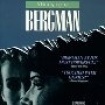Skammen
| 片名: | Skammen |
|---|---|
| 其它片名: | |
| 导演: | Ingmar Bergman |
| 编剧: | Ingmar Bergman |
| 制片人: | Lars-Owe Carlberg |
| 摄影: | Sven Nykvist |
| 剪辑: | Ulla Ryghe |
| 主演: | Max von Sydow, Liv Ullmann, Sigge Fürst |
| 片长: | 103分钟 |
| 年份: | 年 |
| 类型: | |
| 国别: | 瑞典 |
| 语言: | 瑞典语 |
| 格式: | |
| 制作机构: | Cinematograph AB |
影片概述 . . . . . .
First of all the story is not so simple as many earlier reviewers tend to emphasize, it is actually a very complex story, unlike Bergman's other movies that are more bend towards character study. In Skammen we have two main characters but as we are thrown from the start in the middle of a war we have no idea who is fighting and why, everything is open for any resolution. This creates a huge tension and makes every event meaningful. As the story unfolds we are introduced to numerous characters, that are turned into symbols of humanity, both its dark and luminous sides. We have the example of the innocent bystanders who try to get by during an absurd war, the cynical doctor who makes fun of his patients and provides the only bitter humor of the whole movie, the perverse opportunists who try to make the best of an atrocious event (Bjornstrand's character), the innocent dead children, the nameless figures almost turned into animals from the boat etc. All of them are somehow seen through the eyes of Jan (von Sydow) and Eva (Ulmann), their characters are more restrained then in other Begrman films (En Passion) and this is exactly because what is important here is the story, the way exterior events have the capacity to radically change human nature.
Bergman made this film two years after Persona where the main conclusion expressed by the only word uttered by Liv Ulmann's character is INGENTING, nothing. That's it: the meaning of art and the meaning of life, the latter being nothing more than a play that includes all plays. But what about war? And especially the annihilating ones of the XX'th century. In Persona, the only real emotion suffered by Ulmann's character is when she sees a victim of the Vietnam war turned into a human torch. In Skammen that idea is extended to a complex analysis of the dehumanizing nature of war. In a nameless region of a nameless country (we only assume it's Sweeden) two factions speaking the same language fight an absurd war. Jan and Eva are two dreamers caught in the middle but their dreams are woven in a sort of counterpoint. Jan is at first an idealist, unable to react properly to the world and a subject to his wife's will. Towards the end he turns into a radically different personality, capable of unmotivated murder, strong-willed, pitiless (watch carefully the suicidal on the boat..the simplicity of the act is harrowing). On the other hand Eva progressively looses touch with reality and at the end she is completely suffused in her own unfulfilled dream.
From a technical point of view the whole movie delivers its message in a very effective way. Bergman places the viewer alongside the character, putting the camera in the car with the actors, or in an extreme close-up behind the actor. Nykvist manages an extraordinary control of the camera, there are some masterful "hand-held" effects, very good in making everything seem "real". The shots when the characters are captured by the army look remarkably documentary-like. The screenplay is minimalist but the story is quite complex for that matter. Actually the whole movie is paradoxical, it has an intensity in the subject that is in a sharp contrast to the coldness and lack of emotional involvement with which it is directed and filmed. Nothing is melodramatic here, there is no compassion, no hope and no apparent redemption. But, as in Liv Ulmann's dream at the end it is all so beautiful one cannot help but being amazed at it...It was not so awful since it was so beautiful!
Bergman made this film two years after Persona where the main conclusion expressed by the only word uttered by Liv Ulmann's character is INGENTING, nothing. That's it: the meaning of art and the meaning of life, the latter being nothing more than a play that includes all plays. But what about war? And especially the annihilating ones of the XX'th century. In Persona, the only real emotion suffered by Ulmann's character is when she sees a victim of the Vietnam war turned into a human torch. In Skammen that idea is extended to a complex analysis of the dehumanizing nature of war. In a nameless region of a nameless country (we only assume it's Sweeden) two factions speaking the same language fight an absurd war. Jan and Eva are two dreamers caught in the middle but their dreams are woven in a sort of counterpoint. Jan is at first an idealist, unable to react properly to the world and a subject to his wife's will. Towards the end he turns into a radically different personality, capable of unmotivated murder, strong-willed, pitiless (watch carefully the suicidal on the boat..the simplicity of the act is harrowing). On the other hand Eva progressively looses touch with reality and at the end she is completely suffused in her own unfulfilled dream.
From a technical point of view the whole movie delivers its message in a very effective way. Bergman places the viewer alongside the character, putting the camera in the car with the actors, or in an extreme close-up behind the actor. Nykvist manages an extraordinary control of the camera, there are some masterful "hand-held" effects, very good in making everything seem "real". The shots when the characters are captured by the army look remarkably documentary-like. The screenplay is minimalist but the story is quite complex for that matter. Actually the whole movie is paradoxical, it has an intensity in the subject that is in a sharp contrast to the coldness and lack of emotional involvement with which it is directed and filmed. Nothing is melodramatic here, there is no compassion, no hope and no apparent redemption. But, as in Liv Ulmann's dream at the end it is all so beautiful one cannot help but being amazed at it...It was not so awful since it was so beautiful!
导演阐述 . . . . . .
获得奖项 . . . . . .
评论列表(0) . . . . . . ( 发表新评论 ) ( 更多评论 )
幕后花絮 . . . . . . (上传花絮) (展开所有)
虽然伯格曼的电影常被称 “晦涩“,却从未妨碍我对于它们的喜欢。这一部《羞耻》(Shame)却是在所有曾经看过的伯格曼的作品中喜欢得最少的一部。看过之后,总觉得不大舒服,于是借回来再看。
《羞耻》拍摄于1968年。而从60年代初伯格曼的“上帝三部曲”之后,据称伯格曼的影片进入了“室内剧”的时期,比如《犹在镜中》如同一部四重奏。不过,《羞耻》显然走出了“室内”,其触角也不仅仅是一个人或者几个人的世界。
故事的主要人物,伊娃(Eva)和杨(Jan)-----伊娃本是某交响乐团的第一小提琴手,杨也是交响乐团的小提琴手,因为战争,乐团解散,夫妻二人来到一座小岛上当农夫维生。
其实影片为两个主人公创造了一个相对与世隔绝的环境。远离大陆的小岛,农夫的生活,电话坏了,收音机坏了,他们两个不知道外面发生了什么,直到一个午后飞机呼啸过农庄。
相对与世隔绝的环境并不能逃过战争的阴影,即使他们二人已经被迫放弃了一切,来到小岛上种庄稼。从前拉提琴的手现在用来刨土豆,再也不能拉琴了。
虽然《羞耻》的大背景是战争的背景,可是从始至终观众没有得到关于这场战争的任何信息。其他的战争片的背景基本上是历史上曾经发生过的战争,一战,二战,此战,彼战。而这部影片的战争背景完全是虚幻的,不,应该说是虚拟的。看其他的战争片,不论如何,它们都有结束的一天,而且我们都知道它们结束的具体日子,比如1945年5月8 日。我们这些观众,手中握着已知的故事,稳稳的坐在电影院里看过去发生的故事。那些故事发生在“他们”身上,然后那些故事已经完结了。于是不论多么痛苦与悲惨,我们都有一根救命稻草“唉!幸亏一切都已经结束了。”'
可是,在“羞耻”中,观众根本无法知道战争是从何开始的,又将要在什么时候结束。故事的最后,伊娃和杨坐的木船漂流在满是浮尸的大海上,夕阳西沉。什么时候是尽头?不知道。
看其他的战争片,让我为自己生在和平年代而觉得幸运;看《羞耻》竟然叫我为未来担忧。
这部片子一反他其他影片的一贯风格,从头至尾没有一点点光亮。其他的影片的故事,人性虽恶虽丑,但发生的对象往往是一个人,几个人或者一群人。有些故事也可能只是生活中的一个篇章,可以翻过去。《小丑之夜》里,Anna和Albert一同走向马车,天亮了,马车继续前行,往下一个马戏表演的目的地;《野草莓》里博格教授的睡前的微笑,在梦里他回到了童年;即便是《第七封印》中,Maria和Josef的马车安全的逃离了死神。可是,在《羞耻》中,整个世界变了样,所有的人变了样,配合那虚拟的战争背景,一切竟然都翻不过去了!
在其他的战争片中,我们知道战争开始的原因,进行的阶段;即使那些战争不是历史上真正发生过的战争,我们也知道战争的内在“逻辑”。比如,谁在打谁,谁是正,谁是反,谁又是人民,谁又是敌人;谁是万恶的法西斯,而谁又是正义的力量。人们为什么死,为什么而死,甚至可以略略推断出死得“值不值”。
不过在《羞耻》中,这些逻辑皆悉隐没,甚至打仗两方的士兵的制服看上去几乎一样。观影者找不到影片中战争的发生逻辑,于是丧失了判断的基石。影片中那么多的死亡,孩子趴在地上小小的躯体,一个连一只鸡都不敢杀的杨,竟然为了自己的前后杀了两个人,观众看到这些,希望从电影中得到理性的解释,以解决焦虑,可是观众得不到。为什么?--- 不为什么?没有原因和逻辑。在《羞耻》中,战争没有逻辑。
于是,观众自己开始焦虑,更恐惧自己有一天也需要像杨一样毫无羞耻的生存,只为生存。
在影片最后,伊娃躺在船舱里,已经吃掉了最后的粮食,饮尽了最后一滴水。她说了她的一个梦。在梦中,伊娃走在美丽的街道上,街道的一旁是高大的白色房子,另一边是一个可爱的公园,公园里有小溪;还有一处盛开的玫瑰。忽然飞来一架飞机将所有的玫瑰都烧着了。她手中抱着自己的六个月的女儿,看着烧着的玫瑰,竟然烧得挺美。在梦中,伊娃极力想明白某个人讲过的重要的话,可是她怎么也想不起来了。
伊娃想不起那个逻辑。玫瑰被烧,没有逻辑,只有羞耻。
写到这里,其实我很喜欢这部影片;只是,它让我不知如何解除观影之后产生的焦虑,和恐惧。不需要肠子从肚子里流出来,不需要缺胳膊端腿,《羞耻》比其他任何战争片都让我感受到了恐惧。
影片中,当伊娃和杨忽然被带到了所谓的指挥所受审讯,在人群中,伊娃轻声跟杨说:“有时候一切都像是梦。不过不是我的梦,而是别人的梦,我在别人的梦里。如果那个人醒来了,为自己的梦而感到羞耻,会怎么样呢?” (At times everything is like a dream. It is someone else’s that I am part of. What happens when that person wakes and is ashamed?” )
他们的羞耻,我们的恐惧。
——2009-03-20 16:30:05,4444上传
《羞耻》拍摄于1968年。而从60年代初伯格曼的“上帝三部曲”之后,据称伯格曼的影片进入了“室内剧”的时期,比如《犹在镜中》如同一部四重奏。不过,《羞耻》显然走出了“室内”,其触角也不仅仅是一个人或者几个人的世界。
故事的主要人物,伊娃(Eva)和杨(Jan)-----伊娃本是某交响乐团的第一小提琴手,杨也是交响乐团的小提琴手,因为战争,乐团解散,夫妻二人来到一座小岛上当农夫维生。
其实影片为两个主人公创造了一个相对与世隔绝的环境。远离大陆的小岛,农夫的生活,电话坏了,收音机坏了,他们两个不知道外面发生了什么,直到一个午后飞机呼啸过农庄。
相对与世隔绝的环境并不能逃过战争的阴影,即使他们二人已经被迫放弃了一切,来到小岛上种庄稼。从前拉提琴的手现在用来刨土豆,再也不能拉琴了。
虽然《羞耻》的大背景是战争的背景,可是从始至终观众没有得到关于这场战争的任何信息。其他的战争片的背景基本上是历史上曾经发生过的战争,一战,二战,此战,彼战。而这部影片的战争背景完全是虚幻的,不,应该说是虚拟的。看其他的战争片,不论如何,它们都有结束的一天,而且我们都知道它们结束的具体日子,比如1945年5月8 日。我们这些观众,手中握着已知的故事,稳稳的坐在电影院里看过去发生的故事。那些故事发生在“他们”身上,然后那些故事已经完结了。于是不论多么痛苦与悲惨,我们都有一根救命稻草“唉!幸亏一切都已经结束了。”'
可是,在“羞耻”中,观众根本无法知道战争是从何开始的,又将要在什么时候结束。故事的最后,伊娃和杨坐的木船漂流在满是浮尸的大海上,夕阳西沉。什么时候是尽头?不知道。
看其他的战争片,让我为自己生在和平年代而觉得幸运;看《羞耻》竟然叫我为未来担忧。
这部片子一反他其他影片的一贯风格,从头至尾没有一点点光亮。其他的影片的故事,人性虽恶虽丑,但发生的对象往往是一个人,几个人或者一群人。有些故事也可能只是生活中的一个篇章,可以翻过去。《小丑之夜》里,Anna和Albert一同走向马车,天亮了,马车继续前行,往下一个马戏表演的目的地;《野草莓》里博格教授的睡前的微笑,在梦里他回到了童年;即便是《第七封印》中,Maria和Josef的马车安全的逃离了死神。可是,在《羞耻》中,整个世界变了样,所有的人变了样,配合那虚拟的战争背景,一切竟然都翻不过去了!
在其他的战争片中,我们知道战争开始的原因,进行的阶段;即使那些战争不是历史上真正发生过的战争,我们也知道战争的内在“逻辑”。比如,谁在打谁,谁是正,谁是反,谁又是人民,谁又是敌人;谁是万恶的法西斯,而谁又是正义的力量。人们为什么死,为什么而死,甚至可以略略推断出死得“值不值”。
不过在《羞耻》中,这些逻辑皆悉隐没,甚至打仗两方的士兵的制服看上去几乎一样。观影者找不到影片中战争的发生逻辑,于是丧失了判断的基石。影片中那么多的死亡,孩子趴在地上小小的躯体,一个连一只鸡都不敢杀的杨,竟然为了自己的前后杀了两个人,观众看到这些,希望从电影中得到理性的解释,以解决焦虑,可是观众得不到。为什么?--- 不为什么?没有原因和逻辑。在《羞耻》中,战争没有逻辑。
于是,观众自己开始焦虑,更恐惧自己有一天也需要像杨一样毫无羞耻的生存,只为生存。
在影片最后,伊娃躺在船舱里,已经吃掉了最后的粮食,饮尽了最后一滴水。她说了她的一个梦。在梦中,伊娃走在美丽的街道上,街道的一旁是高大的白色房子,另一边是一个可爱的公园,公园里有小溪;还有一处盛开的玫瑰。忽然飞来一架飞机将所有的玫瑰都烧着了。她手中抱着自己的六个月的女儿,看着烧着的玫瑰,竟然烧得挺美。在梦中,伊娃极力想明白某个人讲过的重要的话,可是她怎么也想不起来了。
伊娃想不起那个逻辑。玫瑰被烧,没有逻辑,只有羞耻。
写到这里,其实我很喜欢这部影片;只是,它让我不知如何解除观影之后产生的焦虑,和恐惧。不需要肠子从肚子里流出来,不需要缺胳膊端腿,《羞耻》比其他任何战争片都让我感受到了恐惧。
影片中,当伊娃和杨忽然被带到了所谓的指挥所受审讯,在人群中,伊娃轻声跟杨说:“有时候一切都像是梦。不过不是我的梦,而是别人的梦,我在别人的梦里。如果那个人醒来了,为自己的梦而感到羞耻,会怎么样呢?” (At times everything is like a dream. It is someone else’s that I am part of. What happens when that person wakes and is ashamed?” )
他们的羞耻,我们的恐惧。
——2009-03-20 16:30:05,4444上传
影片图集 . . . . . . (更多/我要上传)
相关视频 . . . . . . (更多/我要分享)
对本影片资料作出贡献的会员 . . . . . .
4444(创建者)





























































